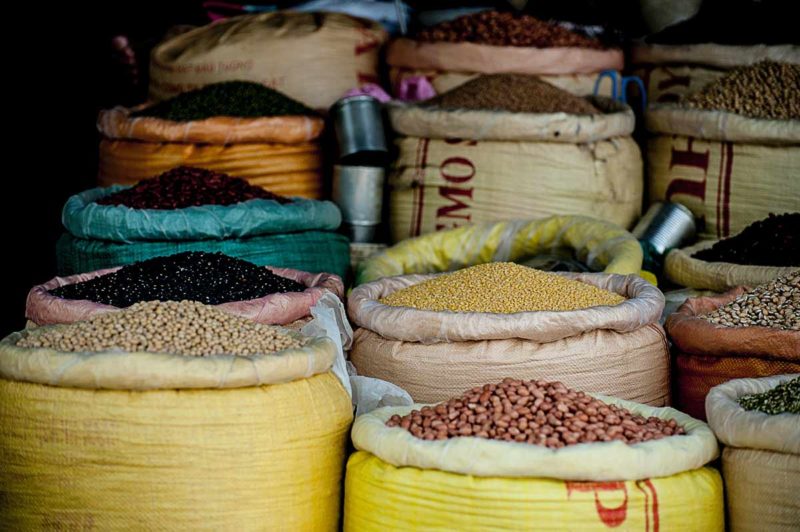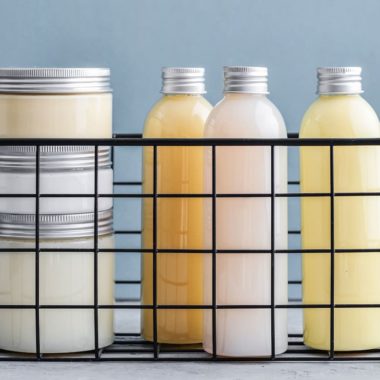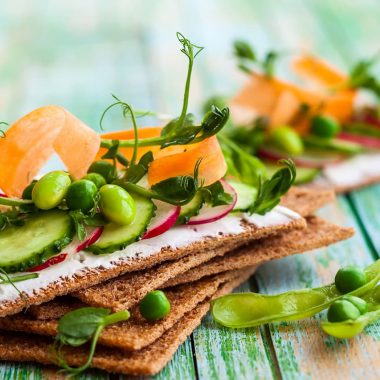Hardly a day goes by without seeing an advert for a vegetarian or vegan restaurant, or a report on animal protein-free steaks or nuggets 2.0. Have plant proteins become indispensable? Should we embrace them? And if so, why and how?
As you know, balance is one of the cornerstones of clean eating. Adopting green diets, mono-diets, or 100% vegan menus for a day isn’t necessarily forever. It’s a matter of customisation and timing. The same applies to meat and plant proteins.
What is the difference between plant and animal proteins?
They are structurally different in terms of amino acid content, digestion, nutritional composition, and environmental impact. Animal proteins have a complete amino-acid composition in opposition to plant proteins. Animal proteins, such as meat, eggs, and milk, are complete proteins, meaning they provide all of the essential amino acids our body needs. Animal products provide the highest-quality protein sources. However, by combining different types of plant protein, we can obtain a balanced supply of amino acids and prevent any deficiencies from developing.
When it comes to digestion, animal proteins are easier to digest than plant proteins, because they are rich in amino acids. Plant proteins, on the other hand, may slow down digestion and protein metabolism. Animal proteins contain fundamental nutrients such as essential fatty acids (omega-3, 6, 9), vitamin B12, and iron. Vegetable proteins contain less, although they are often rich in fibre and antioxidants. As far as the environment is concerned, animal proteins have a much bigger negative environmental impact than plant proteins. And for a valid reason: animals need more water, food, space, and energy, while also producing greenhouse gases and waste.
From a metabolic aspect, plant protein, such as legumes, nuts, and seeds, reduces the risk of chronic and autoimmune diseases as it contains less saturated fat and cholesterol than animal protein and is often rich in fibre, vitamins, and minerals (such as iron, calcium, and vitamin B12). When consumed daily, it reduces the risk of cardiovascular diseases and prevents certain cancers. Various studies have shown that people who eat a lot of animal protein are four times more likely to die of cancer than those who eat a diet low in animal protein.
Ethically speaking, plant proteins are generally considered more humane because they do not involve the mistreatment of animals. They are increasingly sourced from fair-trade and organic producers, provided they are not produced from intensive, genetically modified crops.
Proteins are first and foremost a matter of amino acids…
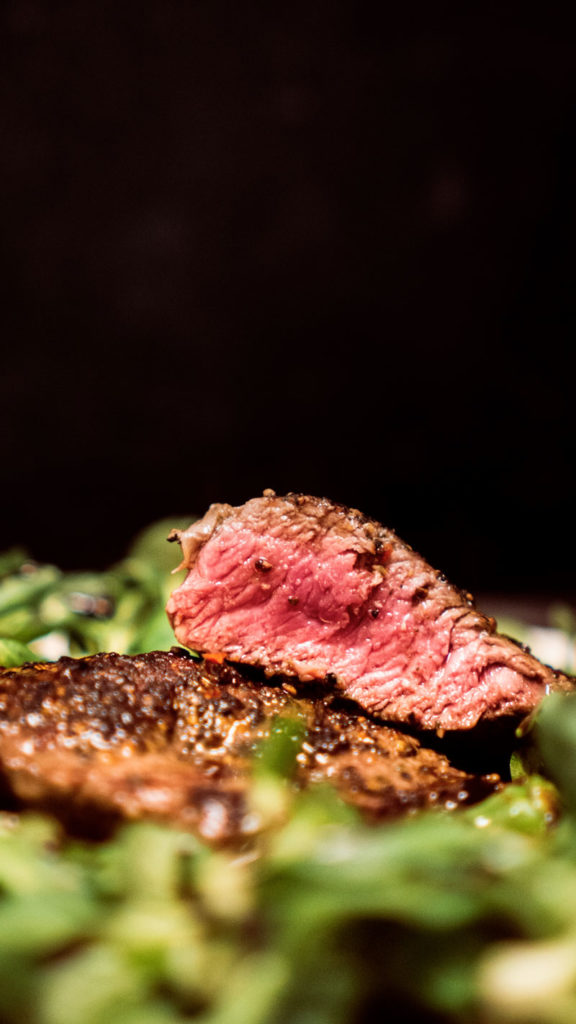
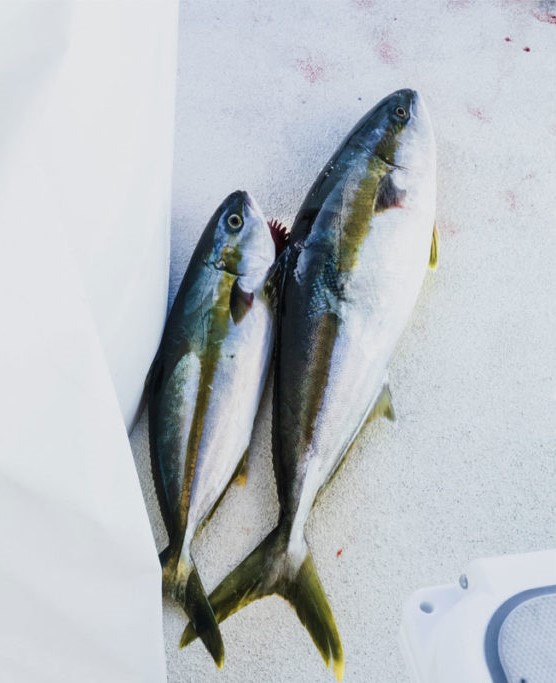
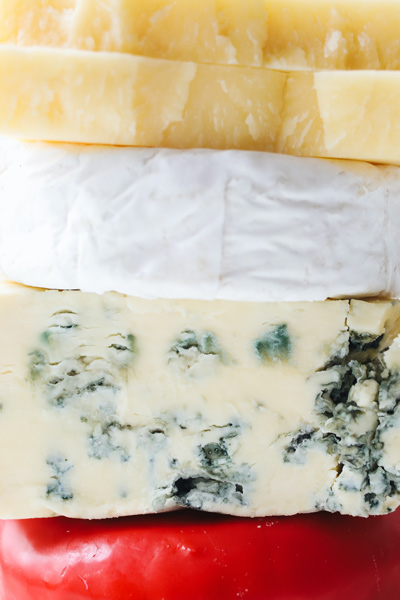
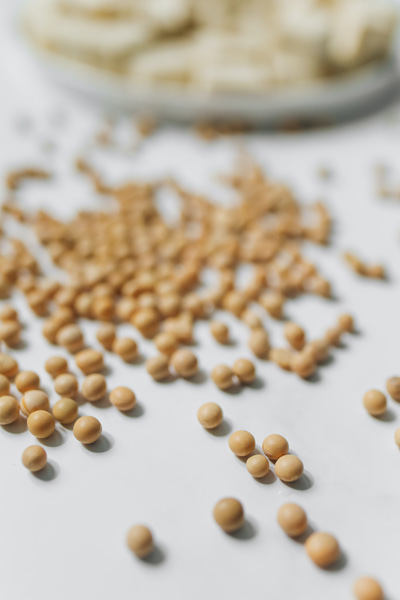
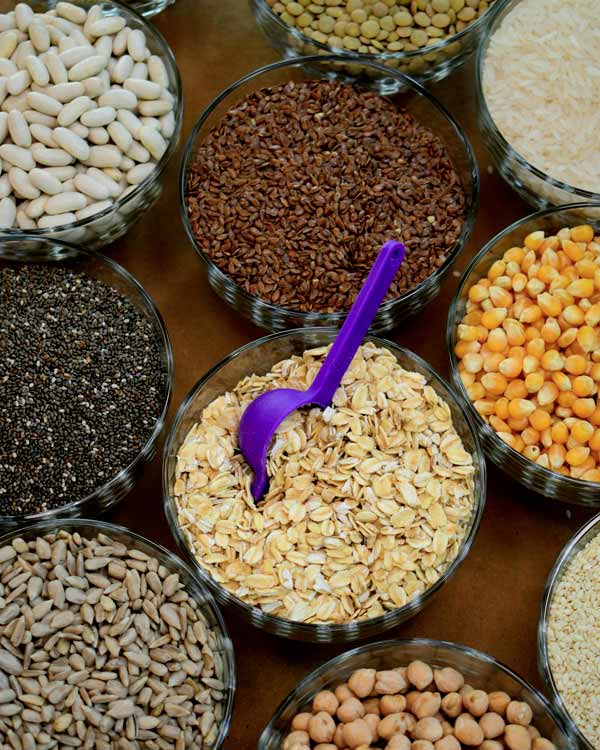
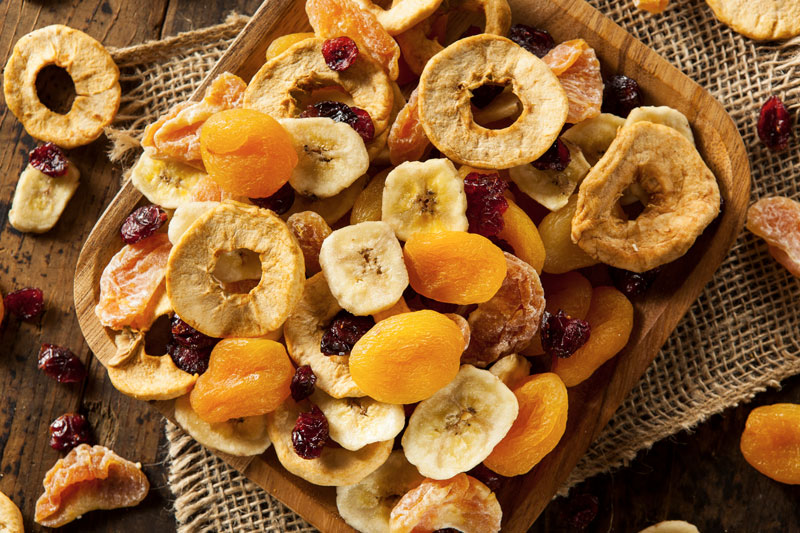
The main difference between animal and plant proteins lies in the richness and variety of amino acids used to form the peptides and proteins essential to the body. Animal proteins contain a wider range of amino acids than plant proteins. In fact, animal proteins contain all amino acids, which have excellent bioavailability.
Plant proteins, on the other hand, need to be combined with grains or vegetables for easier digestion and greater bioavailability.
There are 20 natural amino acids, including 9 “essential” amino acids. The human body requires all 20 of these natural amino acids, which can be found in red meat, white meat (poultry), fish, and cheese, in the case of animal proteins.
Plant proteins contain amino acids in soy, grains, legumes, and dried fruit. So, the more varied your diet, the more likely you are to get all these amino acids.
Natural, essential, and non-essential? The various amino acids
Amino acids are vital for proper cell function, as they form peptides and proteins in the human body. These proteins make up most of the body’s mass, second only to water. These amino acids also contribute to the body’s energy levels, the integrity of the immune system, and the growth, development, and maintenance of muscles and organs. Yet, the human body can only manufacture non-essential amino acids. Others (histidine, isoleucine, leucine, lysine, methionine, phenylalanine, threonine, tryptophan, and valine) are considered essential because the human body cannot produce them. Therefore, they need another source: food. They are also vital to the body, as they synthesise proteins used to produce enzymes, hormones, haemoglobin, etc.
Among the 9 essential amino acids:
- Valine and leucine affect muscles (repair and reconstitution).
- Isoleucine regulates blood sugar levels.
- Tryptophan, the rarest amino acid found in food, is a precursor to serotonin, a neurotransmitter designed to stimulate communication between certain neurons in the brain to regulate mood, sleep, food intake, and sexual activity.
Among the 11 “non-essential” amino acids produced by the body:
- Glutamine, protects the digestive system mainly by helping the liver metabolise alcohol.
- Aspartic acid is an energy-rich substance.
- Arginine stimulates blood flow.
- Glycine is found in collagen.
- Tyrosine is essential for the synthesis of certain neurotransmitters such as adrenaline, dopamine, and noradrenaline. These well-known neurotransmitters allow people to avoid hazards and stay in a positive mood!
The best sources of amino acids
Essential amino acids can be found in complete animal or plant proteins such as:
- Poultry
- Fish
- Beef
- Eggs
- Pork
- Dairy products
- Soy
- Quinoa
- Hemp seeds
- Chia seeds
- Pumpkin seeds
The most practical and common sources of these amino acids are animal proteins such as meat, poultry, and dairy products. What’s more, animal proteins are absorbed more easily than other types of proteins. However, vegetarians, vegans, or anyone who has a plant-based diet may find it difficult to get all the amino acids that are essential in their diet.
Their diet must be very varied to provide the body with the nine essential amino acids it needs to function properly. This is why supplements are often necessary.
How do you know if you are deficient in amino acids?
If you suffer from a lack of energy, cravings, muscle pains, weakened hair, nails, and skin, as well as heightened water retention, there’s a high chance that you’re not getting enough amino acids. If you don’t want to eat animal protein, there are meal substitutes or food supplements that contain plant proteins enriched with amino acids (leucine, isoleucine, and valine) and vitamin B12. Don’t hesitate to ask a naturopath, a nutritional therapist, a dietician, or your pharmacist for advice.
Is a completely plant-based diet better?

According to Angèle Ferreux Maeght, chef, naturopath, founder of La Ginguette d’Angèle, and creator of the Instagram account @laginguettedangele, “We should avoid demonising animal proteins because when we prepare and consume these proteins sourced responsibly and with respect, the process becomes virtuous. Nevertheless, it’s critical to remember that with 1000 litres of water, we can only produce 18 grams of animal protein. This is compared to almost ten times that amount of vegetable protein! This ratio must be kept in mind to encourage consumers to eat more responsibly and to significantly reduce their animal consumption. And above all, recognise that animal consumption can harm their health. By making plant-based food appealing, by playing with colours and flavours, by skilfully blending fruit, flowers, legumes, and cereals in new ways, I’m having fun in the kitchen, while demonstrating that it’s possible to create delicious meals devoid of even a single gram of animal protein!”
For Alon, creator of the Instagram account @Alonimhotep, flexitarian cooking enthusiast, and creator of numerous recipes, there are several reasons why he recommends consuming more plant proteins. “The main reason I avoid animal protein is the environmental aspect. The entire meat/fish production chain is environmentally disastrous. The over-exploitation and over-consumption of meat and fish around the world today is nonsense. The urgency of climate change means we cannot continue living this way. In France, approximately 25% of our carbon footprint is linked to food. Rethinking one’s diet is a wise idea. The well-being of animals is also a significant factor to consider. Plus, having a social media community and influence online makes me feel like I have to lead by example. That’s influence in the best sense of the word. Having discovered the richness of vegetarian/vegan cuisine on social media myself, I’m thrilled that I can do my part to improve the eating habits of even just a few people every year. All for the better. However, there are so many other variables that affect health (quality of sleep, stress, etc.) that I couldn’t ascribe significant changes to diet alone. What we do know is that plant proteins are healthier than animal proteins derived from intensive farms,” he concludes.
Plant-based? Tips from the experts!
These two experts, each with a large social media following, felt compelled to share their plant tips. Chef and naturopath Angèle Ferreux Maeght, as bright as she is creative, has a few tricks up her sleeves. She wants to get the most carnivorous people on board with plant proteins. “I’m a fan of Aquafaba, which is a chickpea water mousse that creates a texture similar to egg whites but… without egg whites!” It works perfectly to make all desserts traditionally made with egg whites whipped into peaks. Another tip from the chef: replace animal gelatin with vegetable gelatin made from seaweed or certain seeds such as chia, flax, or psyllium. “And although I love mozzarella and tomatoes, I like to replace the cheese with a homemade blend of cashew nuts soaked in water, mixed with psyllium for the texture.” Once it cools, this ball serves as plant-based mozzarella. The latest 100% gourmet, guilt-free treat: vegetable foie gras from La Guinguette d’Angèle. A mixture of cashew nuts, chestnuts, mushroom broth, and coconut oil, combined and kept in a cool place, produces a stunning dish. This is one of the most popular hits at La Guinguette d’Angèle for the holiday season at the end of the year. “In order to move beyond theory to actual implementation, and especially to establish new eating habits, I have designed a 21-day masterclass, enough time for the body and mind to adopt new routines and habits. In order to move beyond theory to actual implementation, and especially to establish new eating habits, I have designed a 21-day masterclass, enough time for the body and mind to adopt new routines and habits.” La Cure Végétale Gourmande d’Angèle contains over 40 healthy vegan tips and recipes, a shopping list, and all the utensils needed to cook them, all presented in fun videos (160 €, laguinguettedangele.com/masterclass-manger-sain).
Alon’s recipe for pea gnocchi is an excellent example of his passion for cooking that’s healthy, joyful, and most importantly, accessible to as many people as possible. It’s quick, easy, cheap, and full of plant proteins! The desire to make effective use of what’s left in the cupboard inspired this recipe. “Take a can of peas, puree them, season with salt, then gradually add flour, and mix until you reach your desired texture. Cut it in several pieces and on a floured work surface, roll them out into balls like in the video, and then cut the gnocchi. Completely coat them with flour to prevent sticking. To cook the gnocchi, submerge them in boiling salted water for about 1 minute or until they rise to the surface. Finish in an oiled or buttered frying pan until golden brown, and add the sauce with a bit of the water used to boil them. It’s a protein-packed recipe that’s simple, delicious and a useful way to clear out your cupboards!” says Alon.
“I also regularly indulge in dried beans, lentils, and chickpeas of course, but my biggest discovery is tofu. Although hated by many people, usually without tasting it (like me a few years ago!), tofu is a culinary goldmine. There are countless ways of making it taste amazing, and it’s guaranteed to satisfy even the biggest meat lovers out there!”
So why not add protein to your plate with 100% plant-based foods? Sounds like a treat!


